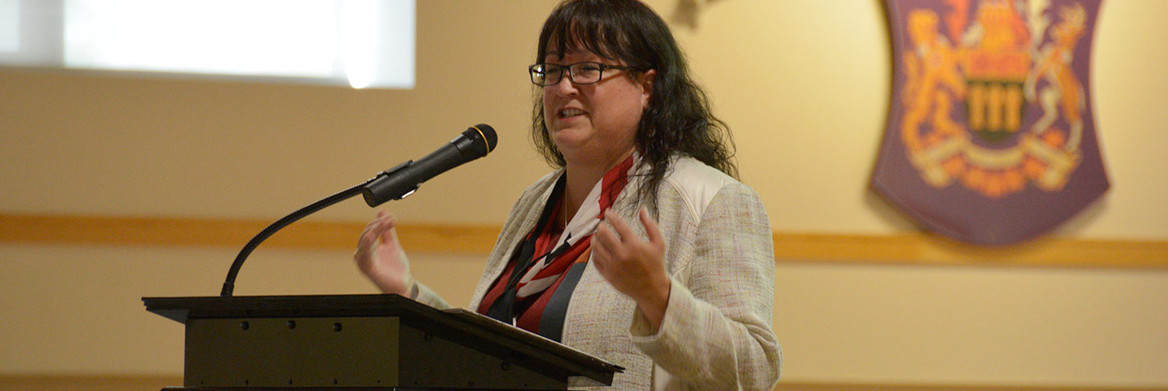Related link
Cadets at the RCMP's training academy are learning more about Indigenous history, helping them prepare for police work in the present.
The training readies future officers for a career across the country where RCMP detachments serve more than 600 Indigenous communities.
"We're broadening cadets' understanding and giving them a sense of empathy for some of the issues they'll see in their policing activities," says RCMP C/Supt. Tyler Bates, training officer at the academy, known as Depot. "We have cadets from all over Canada and many have never lived in or even visited a First Nations community."
Bates points to examples like the KAIROS blanket exercise, an interactive learning experience providing a sense of how colonization has affected Indigenous people. There are also updated courses incorporating aspects of the Truth and Reconciliation Commission and the Inquiry into Missing and Murdered Indigenous Women and Girls reports.
"We're having discussions about reserves, residential schools, the Indian Act and intergenerational traumas," says Bates. "I'm interested in seeing our organization grow the cultural competency of our members, and I'm encouraged by the changes I see."
Increasing awareness
Diane Redsky, an expert on sexual exploitation and sex trafficking, recently began giving presentations to cadets. She explains the extent of sex trafficking in Canada and factors that contribute to women in Indigenous and other marginalized communities being at risk.
"It's important to have this education before walking into a community because it's a hidden crime," says Redsky, whose Depot sessions were initiated by the RCMP's Vulnerable Persons Unit in Ottawa. "Learning about it early on means they're walking into communities with their eyes wide open."
Redsky provides information such as sex trafficking warning signs and common misconceptions, and how police can be proactive in rural and isolated communities by hosting discussions with youth and providing information about support services in the nearest urban centre.
"The more you know, the more you can help protect a community," she says.
Communities benefit from having officers with the latest knowledge of the crimes so they can help craft community-based solutions with the most current and accurate information in mind.
"If we provide awareness to members before they leave Depot, and they work with their partners at the detachments, we're going to be making a contribution to the safety of Indigenous communities," says Bates.
Other initiatives
The additional course content isn't the only Indigenous initiative underway at Depot. Cadets can now choose to affirm their graduating oath with an Eagle Feather.
"It's removing a barrier for Indigenous cadets to exercise their faith," says Sgt. Eric Sheppard, executive assistant to the commanding officer at Depot.
Cadets can use the Bible, Qur'an or other holy books to swear or affirm the oaths.
The Saskatchewan Indigenous Cultural Centre entrusted the RCMP with the care of three eagle feathers to be used during oath-taking and other situations such as grieving.
Cst. Mason Byrne was among the first to use an Eagle Feather when graduating Depot last year.
"It meant a lot to learn more about my past and help me connect with the people in Hay River," says Byrne, whose first posting sent him to the N.W.T. community.
"It would have meant a lot to my late grandmother. She was always big on getting to know our heritage and culture," says Byrne.
Cadets can also use their own feather or one belonging to their family.
"We want to talk about the Eagle Father to encourage understanding. Without sharing these things, they're not understood," says Sheppard, who drafted the Eagle Feather protocol and acts as Depot's Eagle Feather Guardian.
"Instead of having officers learn this on the fly, we're attempting to expose cadets to critical aspects of Indigenous culture before they start working in communities where they will experience these things first hand."
Sheppard says the swearing-in protocol will evolve to incorporate key spiritual components of Inuit and Métis culture.
